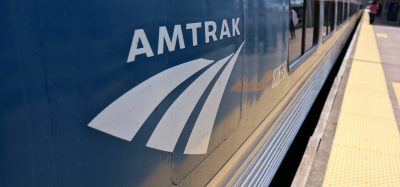Network Rail’s Chief Executive pledges immediate action following Stonehaven derailment
Posted: 13 August 2020 | Global Railway Review | No comments yet
Andrew Haines, Network Rail’s Chief Executive, has vowed to understand the cause and put immediate additional safety measures in place following the derailment near Stonehaven on 12 August 2020 in which three people died and six were injured.


“Questions are inevitably being asked as to how this could happen and I am determined that we understand the circumstances that led to this devastating event. It’s too early to draw conclusions but it is critical that we investigate thoroughly and with care, and work closely with rail safety authorities, to make sure this can’t happen again.”
Andrew joined Transport Secretary Grant Shapps in a helicopter survey of the site, before talking to responders and investigators.
There has been speculation that torrential rainfall and flooding was the cause of the accident, with the government asking Network Rail to review its resilience to, and management of, extreme weather. Addressing the speculation, Andrew made it clear that while the cause is not yet known, precautionary measures were being immediately implemented: “I will not pre-empt the outcome of the investigation into this awful event, but it is clear the weather was appalling and there were floods and landslips in the area. I have asked my teams to put extra measures in place, from immediate, heightened inspections, to medium-term work with meteorologists to improve information and forecasting.”
The measures outlined include:
- As an immediate precaution, dozens of sites nationwide with higher-risk trackside slopes, similar to Stonehaven, will be inspected
- These will be carried out by both in-house engineers and specialist contractors and will be supplemented by helicopter surveys
- In the light of the current extreme weather conditions Network Rail have mobilised extreme weather action teams; they already monitor the network and will incorporate immediate learning into their plans as soon as it becomes available
- In addition, Network Rail are in dialogue with meteorologists to understand how they can strengthen real time information for flash flooding caused by unpredictable extreme weather to inform train operations, in cooperation with industry partners.
- Network Rail engineers are reviewing existing programme for remote monitoring of high-risk sites to test whether this can go faster or further.
Andrew concluded: “Our climate is changing and it is increasingly challenging the performance and reliability of the railway, but incidents like yesterday’s devastating accident are incredibly rare, and our railway remains the safest major railway in Europe.
“Our network was designed for a temperate climate, and it’s challenged when we get extremes such as storms and floods. We’re seeing this more and more and although we can address them on the ground with precautionary measures, we are acutely aware we need a long-term resolution, and we had already secured additional funding and resources to help achieve this.
“Yesterday was a tragedy, a truly horrific event, and my thoughts remain with everyone affected. Understanding what happened is the key to making sure it never occurs again.”






